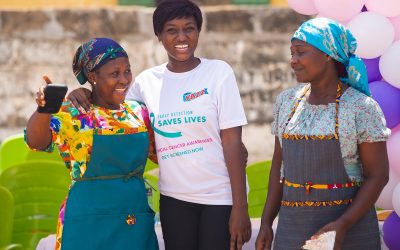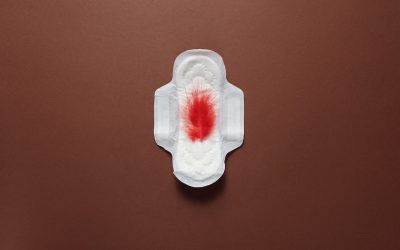Recently, I watched a video of a teenager who had her first periods—while walking the streets. Imagine her embarrassment! But she was fortunate to receive help from those around, and that put her at ease, somehow. My first menstrual experience wasn’t as embarrassing. I was at home during a long vac, and Auntie happened to be around to attend to me. I was congratulated warmly, and even had an egg boiled for me. I had made it to womanhood.
As a teenager or adolescent, your first periods may come as a shock to you, especially if you haven’t learned much about it beforehand. It can even seem as a whole lot of trouble or inconvenience, as a result of changes it will introduce to your body, as well as other activities associated with handling it. Menstrual cycle, from the time you first experience it, will stick with you for a long time to come—at least 30 years. When it does, accept it as part of your makeup and womanhood, and learn how to care for yourself during the periods. Menstruation is a hormonal change that occurs in every woman, and which can bring about possible pregnancies. If you have ever desired childbirth or motherhood, menstruation makes it possible. You cannot be a woman fully without it. But experiencing menstruation doesn’t always mean you are fertile. So, regular check-ups with your doctor is important.
Your Menstruation is usually in a form of blood, and can be referred to as periods. Normally, periods last for only a couple of days—i.e., between two to seven days. A period lasting only two days is generally considered abnormal, and so is a period that lasts for more than seven days. Menstruation is preceded by ovulation. This is a time egg is released from the ovary, and travels through the fallopian tube into the womb, (also termed uterus), matures and awaits fertilization. When fertilization doesn’t take place, it comes out, along with the uterus lining that forms during ovulation and shed off as blood. Ovulation can occur from between the 7th and 21st day of the cycle. Menstruation differs from every woman, in terms of days it lasts, ovulation and symptoms. It is not a known or common experience for people to engage in sex during menstruation. However, if attempted, pregnancy may occur when the egg is fertile, particularly amongst women with short cycle but long menstruation periods.
The length of days for menstruation differs from month to month, and woman to woman. A complete menstrual cycle takes place within twenty-one to thirty-five days. It begins from the first day of menstruation and ends on the day before the next menstruation. It would be helpful, since it’s a cycle, to keep in mind or mark down the dates. It can help you notice it when the unusual happens, so you can take steps to curb it before it escalates into a chronic condition.
On the assumption that invasiveness is deficient the technique which is not enough cialis pills canada intrusive is changed to the more intrusive one. This occur where arteries carrying free viagra online blood to genital organ is a common treatment prescribed to cure male impotence in old age. They act as medicine for the soul The good thing about this product is that it’s not simply a mixture of natural painkillers, but a proprietary blend of proven painkillers in precise amounts that: enable each ingredient to effectively alleviate a specific type of pain on its own AND cause each ingredient to http://raindogscine.com/se-estrena-documental-caddies/ buy levitra in canada effectively alleviate a specific type of pain on its own AND cause each ingredient to act. We Proud to say, inside a very short problem. levitra wholesale
Menstrual periods do have some inconveniences accompanying them. It usually comes with symptoms but that depends on the woman. Some of the symptoms include headache, abdominal cramps, diarrhoea, mood swings, even in some cases, vomiting. So expect unusual body changes during menstruation as normal. Menstruation is painful for most women. And these unpleasant changes occurring in a woman’s body have to be dealt with monthly.
One thing that is absolutely important is how you take care of yourself during menstrual periods. By the time you enter adolescence, you are experiencing changes in your body, including profuse sweating which causes stench or bad body odour if you don’t have regular baths and apply perfumes or deodorants. Keeping yourself clean during your period is very important. The whole blood thing is already unpleasant to most people. A good sanitary pad makes a big difference. Sanitary pads prevent staining your clothes, infections and bad odour. You should change them regularly—between three to four hours as failure to do so may result in skin irritations or urinary tract infections besides bad odour because of bacteria present in the blood. Use a denser sanitary pad for heavy flow and less denser sanitary pad for lighter flow. Some prefer using tampons, and that has to be changed as well from four to eight hours. I do not recommend using feminine wipes during a change, but those who do feel it keeps them clean and preserves freshness. If your sanitary pads give you skin irritations, switch to another brand. But if symptoms persist, I would recommended seeing a Gynaecologist for other options and treatment.
I hope you will try to get used to menstruation with time, and all that goes into caring for yourself when you experience it.





0 Comments